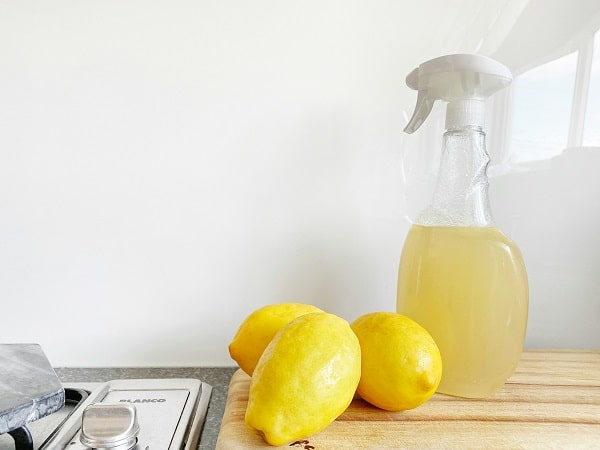Let’s face it, cleaning isn’t exactly everyone’s favorite chore. But it’s a necessary evil, right? Well, what if we told you it could be a whole lot greener? That’s right, we’re talking eco-friendly home cleaning. By swapping out those toxic chemicals for natural alternatives and reducing waste, you can not only create a healthier living environment but also do your part to protect the planet.
But don’t worry, we’re not suggesting you scrub your floors with a toothbrush. We’ve got some simple and effective tips to help you transform your cleaning routine into an eco-friendly powerhouse. So, let’s dive in and discover how to clean your home without compromising the environment.
The Dirty Truth About Conventional Cleaners
Before we get into the nitty-gritty of eco-friendly cleaning, let’s talk about why it’s important to ditch those toxic cleaners. Conventional cleaning products are often packed with harsh chemicals that can be harmful to both your health and the environment. These chemicals can irritate your skin, eyes, and respiratory system, and they can also pollute our water supply.
In addition to the health risks, conventional cleaners also contribute to plastic pollution. Most cleaning products come in plastic bottles that end up in landfills or our oceans. It’s time to break free from this cycle of waste and choose a cleaner, greener alternative.
Embrace the Power of Natural Cleaning Products
The good news is that you don’t need a cupboard full of expensive, toxic cleaners to achieve a sparkling clean home. Nature has provided us with a plethora of effective and eco-friendly cleaning agents. From vinegar to baking soda, these natural ingredients can tackle just about any cleaning job.
- Vinegar: This versatile ingredient is a powerful cleaner that cuts through grease and grime. It can be used to clean everything from countertops to windows.
- Baking soda: A gentle abrasive, baking soda is perfect for scrubbing away tough stains. It can also be used as an odor absorber.
- Lemon juice: This natural disinfectant has antibacterial properties and can brighten surfaces.
- Castile soap: A plant-based soap that is gentle on the skin and effective at cleaning.
By using these natural ingredients, you can create your own homemade cleaning solutions that are safe for your family and the planet.
Minimize Waste in Your Cleaning Routine
In addition to using natural cleaning products, there are several other ways to reduce your environmental impact when cleaning.
- Ditch disposable cleaning wipes: These wipes are often made from plastic and contribute to landfill waste. Instead, use reusable microfiber cloths.
- Reuse containers: Save old spray bottles and refill them with your homemade cleaning solutions.
- Air dry dishes: Skip the dishwasher and let your dishes air dry to save energy and water.
- Recycle cleaning product packaging: Whenever possible, recycle cleaning product packaging to reduce waste.
By making a few simple changes to your cleaning routine, you can significantly reduce your environmental footprint.
Eco-Friendly Home Cleaning: Tips for Specific Areas
Now that you know the basics of eco-friendly cleaning, let’s dive into some specific tips for different areas of your home.
Kitchen:
- Use baking soda and vinegar to clean your oven.
- Make your own dishwasher detergent using baking soda and borax.
- Wipe down countertops with a mixture of vinegar and water.
Bathroom:
- Use white vinegar to clean your shower and bathtub.
- Sprinkle baking soda on carpets and rugs to deodorize.
- Make your own toilet bowl cleaner using borax and vinegar.
Bedroom:
- Wash bedding in hot water to kill dust mites.
- Use a vacuum with a HEPA filter to remove allergens.
- Open windows to let in fresh air.
FAQs
Q: Are natural cleaning products as effective as conventional cleaners?
A: Absolutely! While it may take a little more elbow grease, natural cleaning products can effectively tackle dirt and grime. With a little experimentation, you’ll find the perfect combination of ingredients for your cleaning needs.
Q: Can I use essential oils in my cleaning products?
A: Yes, essential oils can add a pleasant fragrance to your cleaning products and also have antibacterial properties. However, it’s important to use essential oils sparingly and to choose oils that are safe for your family and pets.
Q: How often should I replace my cleaning cloths?
A: Microfiber cloths can be reused multiple times before needing to be replaced. However, it’s important to wash them regularly to prevent the buildup of bacteria.
Wrapping It Up
By making a few simple changes to your cleaning routine, you can significantly reduce your environmental impact and create a healthier home for yourself and your family. Remember, every small step counts, so don’t be afraid to start small and gradually incorporate more eco-friendly practices into your life.
So, what are you waiting for? It’s time to ditch the toxic cleaners and embrace a greener way of life. Your home (and the planet) will thank you!
Share your eco-friendly cleaning tips in the comments below!

